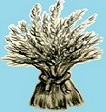2019.04.15 Reflection on what is lost when there is no exchange of ideas
Reflection on what social work has lost when it lost access to financial inventory
ECONOMY & BUSINESS
The Division of Labor Is the Meaning of Life
By KEVIN D. WILLIAMSON
April 14, 2019 6:30 AM
The historical origins of capitalism shed light on our current crisis.
I would like you to entertain, for a moment, an idea that might sound a little eccentric, or maybe as plain and obvious as a thing can be. It is this:
The division of labor is the meaning of life.
I do not mean this metaphorically or analogically, but literally.
Life begins with the cell, and the cell is defined by a minimum of specialization: membrane, cytoplasm, and (usually) nucleus.
What makes a cell a living cell is a matter of some slight imprecision: Most living cells reproduce, but some (such as neurons) do not; most cells have nuclei and DNA, but mature red blood cells do not; etc. But the generally shared characteristics of living cells all depend upon the division of labor within the cell: order, sensitivity to stimuli, growth and reproduction, maintenance of homeostasis, and metabolism.
The cell is defined by the division of labor among the organelles and other cellular constituents. That gets us to the single-celled organism. Next comes division of labor among cells rather than within them. When cells begin to divide labor among themselves, they form tissues and organs, which in turn divide labor to produce organ systems and, ultimately, complex organisms.
We are not colonial organisms. But human beings isolated from other human beings do not thrive. Even in situations in which the material needs of the human animal are satisfied, the human being in isolation degenerates quickly, both mentally and physically. There are many examples of this, but you can get a good indication of the phenomenon reading through the American Civil Liberties Union’s report on prison isolation, “A Death Before Dying: Solitary Confinement on Death Row.”
Feudalism arose in Europe as a response to the decline of commerce. It did not arise in response to the decline of the Roman Empire but to the later decline of the Carolingian Empire, whose leaders, having lost touch with earlier Roman financial and administrative practices, proved unable to protect their people and their trade routes from the Magyar raiders and Vikings who were pillaging practically all of Western Europe. Later, Muslim powers in the East would largely cut Europe off from Mediterranean trade. Venice was practically alone in maintaining trade with the East through the Adriatic.
The lack of trade and of the cultural exchange associated with economic exchange can have terrible consequences for a culture. Archaeologists have found evidence of isolated island peoples discovering and then losing the same piece of technology (a barbed fish hook, in one case) several times over the course of many generations, whereas those people who were in contact with other neighboring peoples did not forget their technological innovations. In the same way, the indigenous British people declined in their standard of material life and technological sophistication to a level well below where they had been prior to their first contact with the Romans. Trade, as it turns out, is not just about widgets.

Add new comment